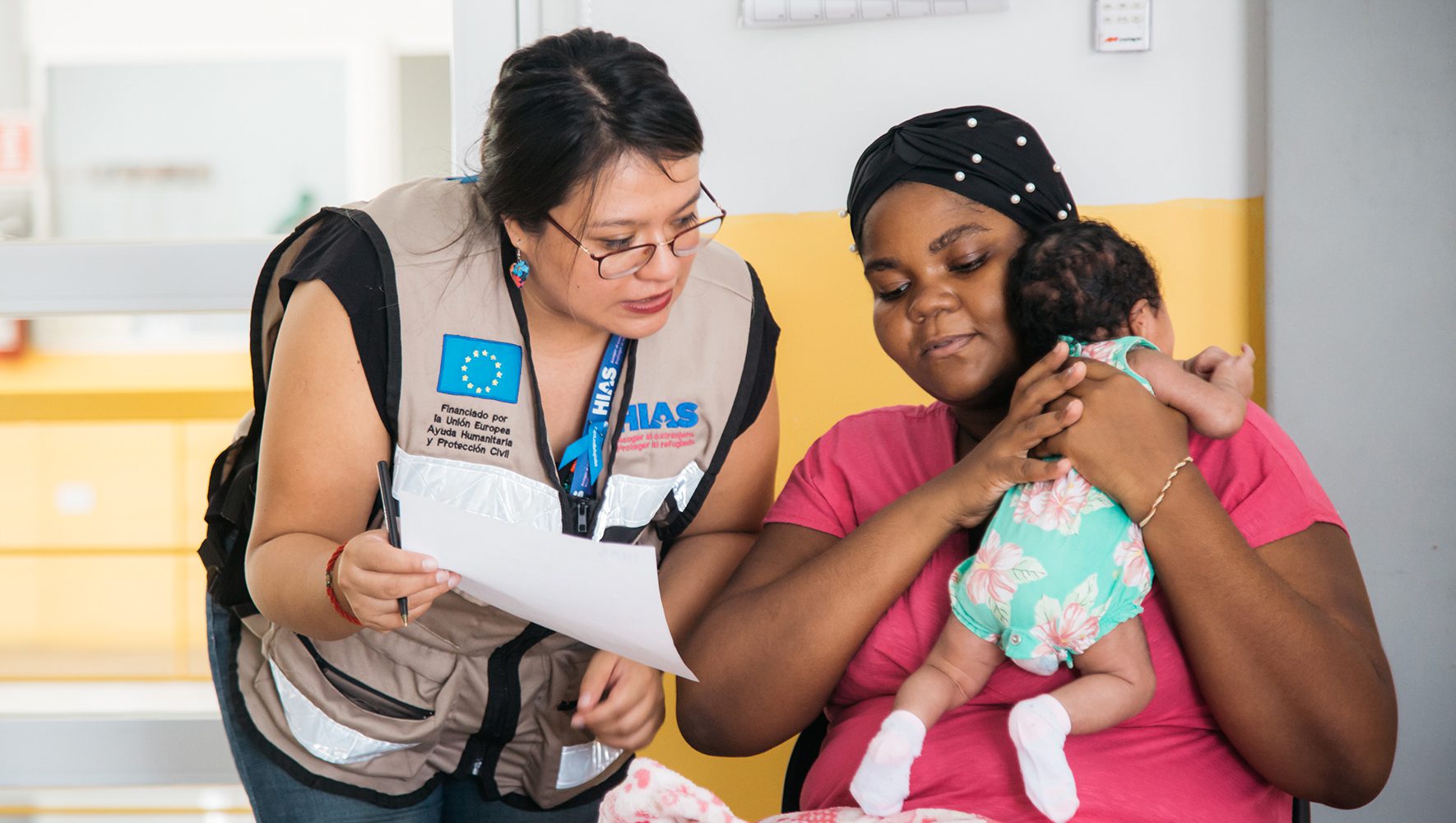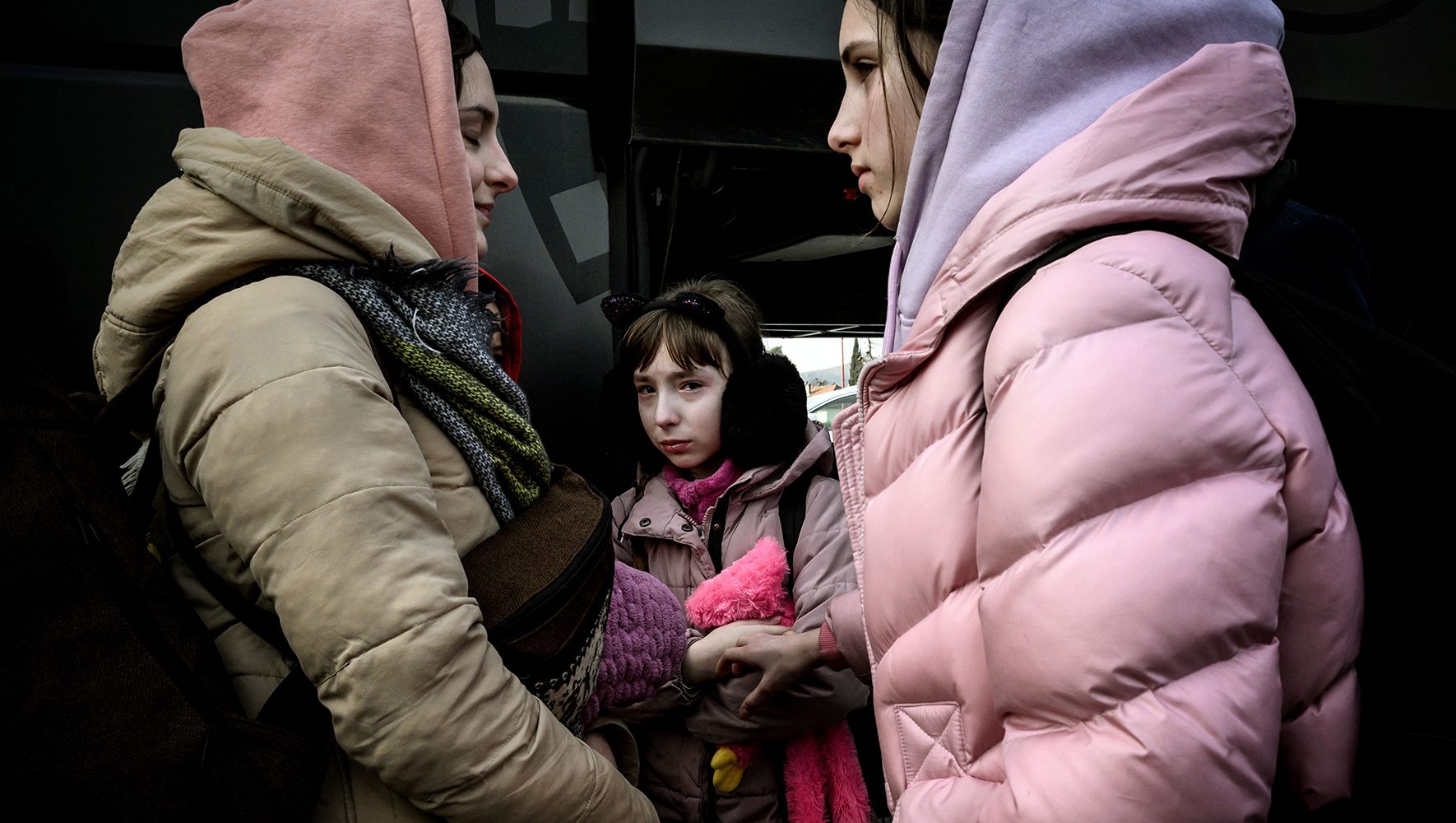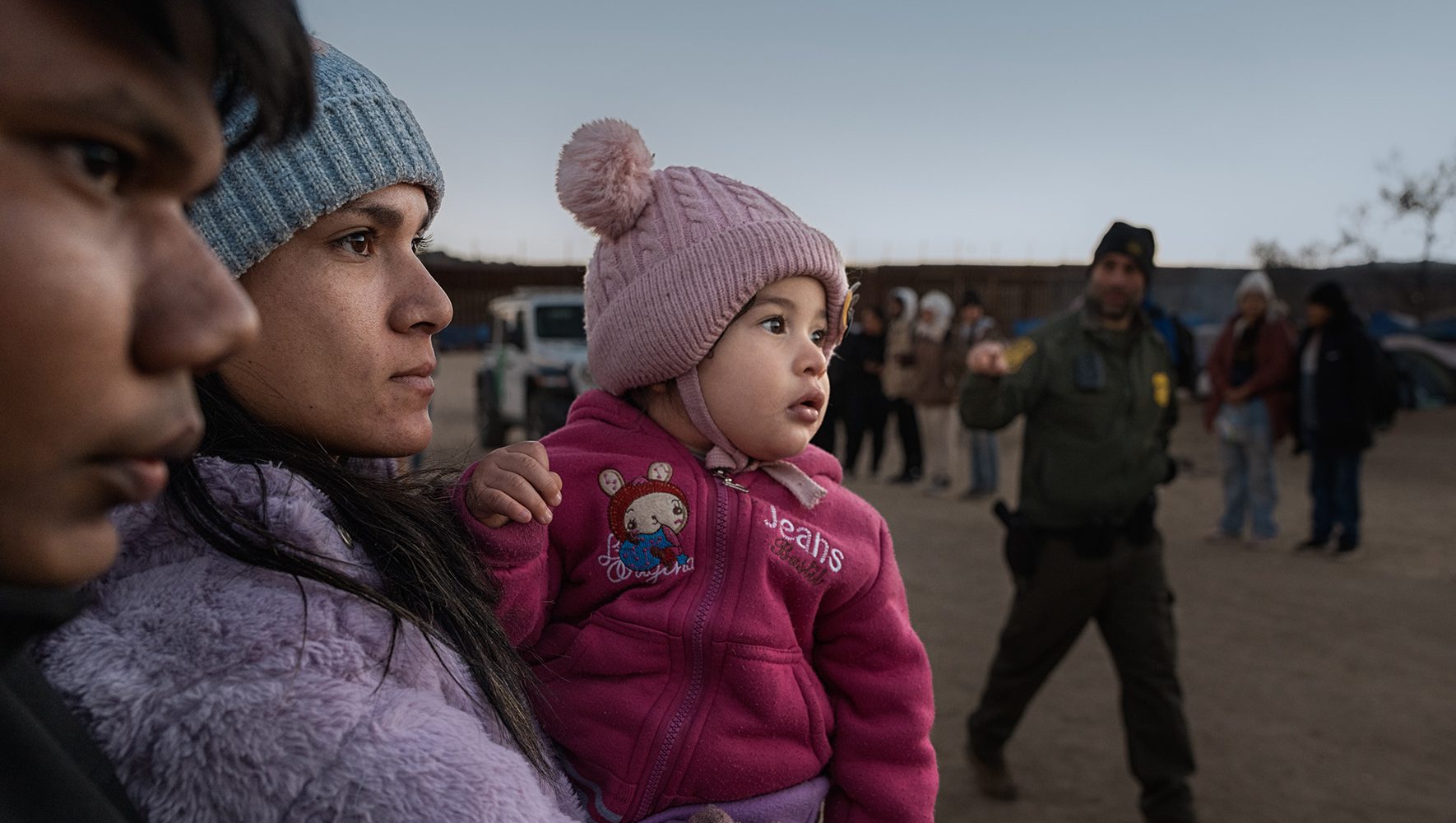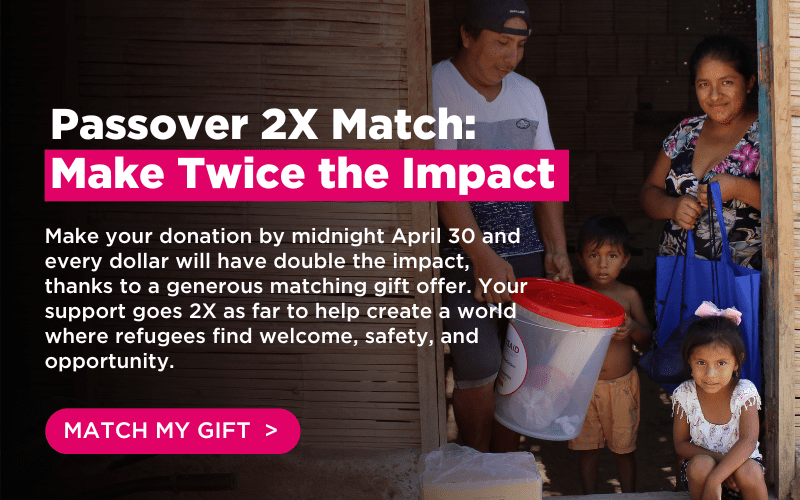A Conversation with HIAS South Africa’s First Country Director
By HIAS.org
Apr 24, 2024
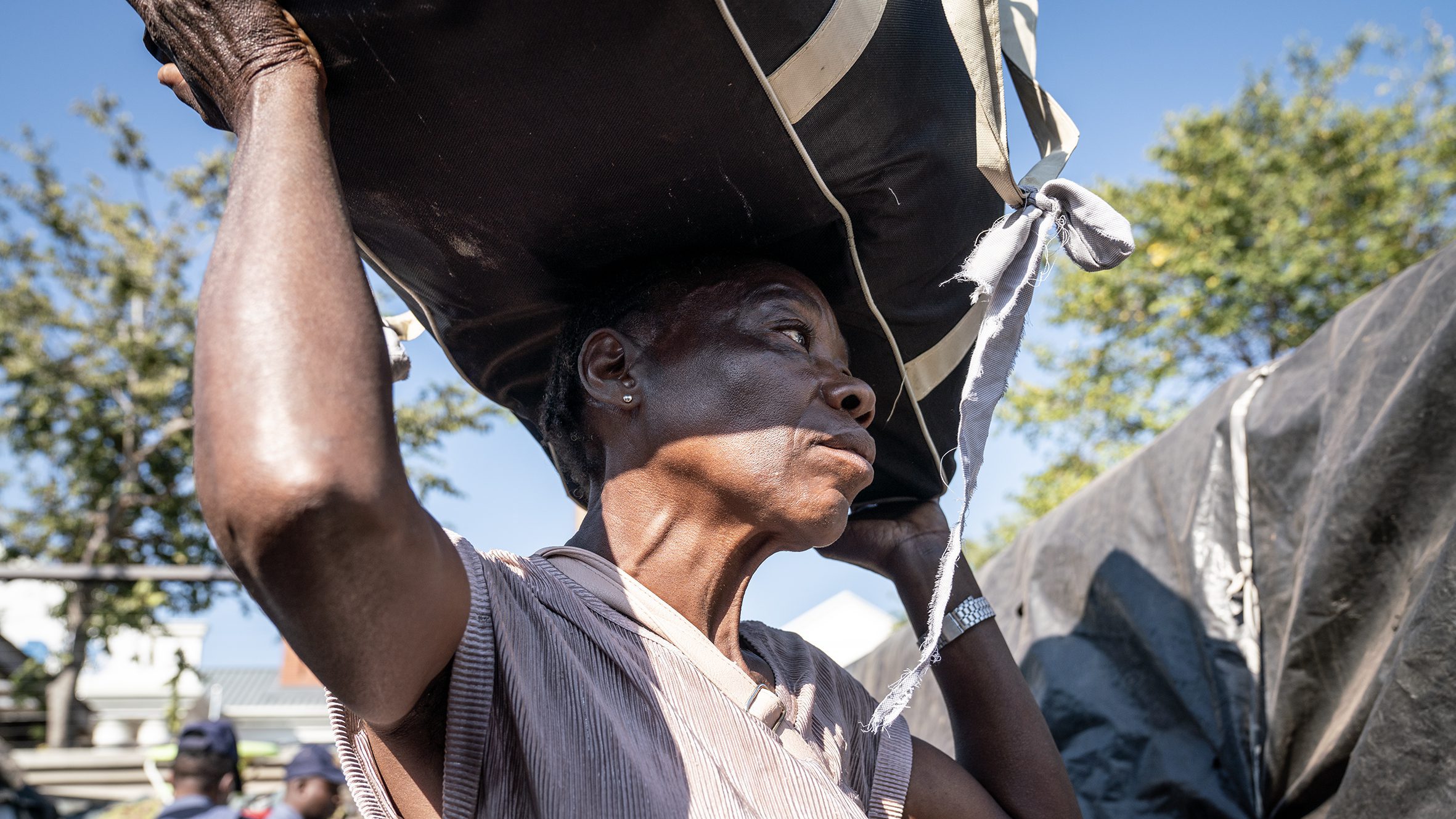
Asylum seekers carry their belongings outside makeshift tents built in front of the United Nations High Commissioner for Refugees (UNHCR) offices in Pretoria, South Africa on April 21, 2023. (Stringer/Anadolu Agency via Getty Images)
In April 2024, HIAS officially opens an office in South Africa. HIAS is now established in three countries in Africa: Chad, Kenya, and South Africa. In a recent conversation, HIAS South Africa’s first director Alana Pugh-Jones Baranov discussed her plan to work alongside the country’s Jewish community in social action and social justice, as well as other initiatives in the years to come. Focusing on legal protection and advocacy at first, HIAS South Africa will eventually provide mental health support and gender-based violence prevention as well as support for women and children and the LGBTQ+ refugee community.
Q: What do you hope to accomplish in this first year? What do you want to focus on in the next year?
HIAS South Africa hopes to contribute meaningfully and sustainably to the refugee sector and broader civil society in South Africa. We want to make a positive impact on the lives of refugees, asylum seekers, and migrants, ease the challenges they face in the country, and ensure they have access to the rights enshrined in South Africa’s Constitution and Bill of Rights.
We have started off small, basing ourselves in Durban, KwaZulu-Natal; and hope to grow slowly and sustainably in other geographic regions in the country and to expand our work and services into other sectors.
Initially, our work will focus on legal protection and advocacy, specifically around refugee rights and documentation as well as combating and preventing Afrophobia and xenophobia in South Africa. Our initiatives will also address mental health and psychosocial support as well as assistance for women and children and the LGBTQ+ refugee community who are at risk of gender-based violence.
"HIAS South Africa is specifically taking a localization approach, with indirect implementation through well-respected and trusted partners."
Alana Pugh-Jones Baranov
What do you see as the most important part of your work?
HIAS South Africa will support long-standing refugee non-governmental organizations and networks which have been making inspiring strides in refugee rights and assistance in the country for decades. In addition, we hope to capacitate, resource, and empower grassroots and refugee-led organizations and networks to expand their work both in Durban and across South Africa.
HIAS South Africa will find existing gaps in the refugee sector and see where we can share our global expertise and best practices to bring together the various networks and initiatives that may be currently working in silos.
What activities and actions are you considering for the coming year?
HIAS South Africa will be holding various activities and actions in the fields of legal protection and advocacy in the coming year. Some of our projects include free legal help desks for the refugee community; print, broadcast, and social media campaigns against xenophobia; and engaging with government and civil society on refugee laws and policies.
How do partnerships and localization play a part in your work?
Partnerships and localization play a fundamental role in our work. HIAS South Africa is specifically taking a localization approach, with indirect implementation through well-respected and trusted partners. As a new organization in the country, we felt that it was crucial to be guided in partnership with other NGOs and refugee-led groups who have the expertise, experience, and on-the-ground knowledge.
What are the three things people should understand about HIAS’ work in South Africa?
1. We believe that refugee rights are human rights.
2. We are putting ancient Jewish values and principles from our religious and historical traditions, including tzedek (justice) and tikkun olam (repairing the world), into action.
3. We are ensuring that refugees, migrants, and asylum seekers have all the rights they deserve as enshrined in our democracy and South Africa’s progressive and ground-breaking constitution.
How does HIAS plan to work with the Jewish community in South Africa?
The South African Jewish community, with its own history of facing discrimination and fleeing persecution, has always felt a unique connection to the refugee community in the country and, particularly since the xenophobic riots of 2008, has been involved in advocating for and supporting refugee, asylum seekers, and migrants in many ways. HIAS has had a long relationship with the Jewish community in South Africa, and HIAS South Africa hopes to work alongside the Jewish community in South Africa to further assist refugees and combat xenophobia and all forms of discrimination and hate in the country.


